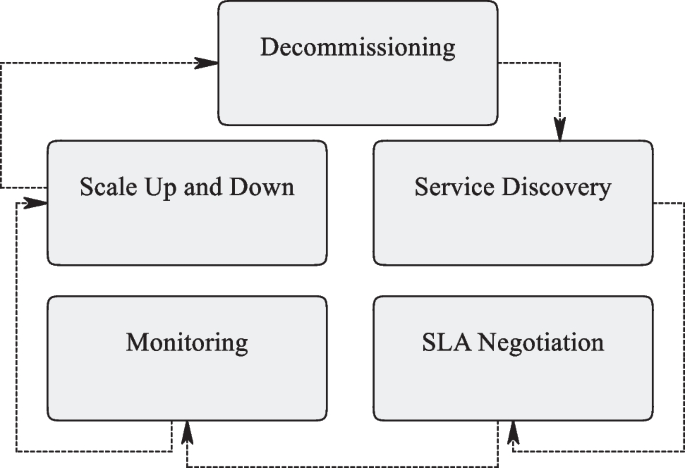在云计算的业务和营销策略中使用动态定价模型和行为分析来设置sla
Q1 Social Sciences
引用次数: 0
摘要
每年产生的数据量都在不断增加。可持续计算系统已经能够从底层数据中提取和学习信息。边缘和人工智能(AI)正在扩展到需要新的计算和网络基础设施的工业系统。因此,在这些新兴的云环境中处理SLA计算变得越来越具有挑战性。云是一种为用户提供虚拟资源的服务。市场导向方法中的定性和定量结果是管理网络中虚拟机和物理机的最常用方法之一。在分配服务时,价格是一个需要考虑的重要因素。在这项研究中,我们的目标是确定虚拟机的初始价格,同时考虑动态定价模型在竞争中,可持续的计算系统。除了基于协商的交易外,市场中的交易还使用了多因素体系结构。仿真结果表明,基于回归对虚拟机进行分类可以提高性能。根据仿真结果,云市场系统在为虚拟机分配市场时提供了更好的服务水平协议(SLA)和响应时间。基于结果,我们发现使用回归方法对虚拟机进行分类来管理市场可以提高SLA。本文章由计算机程序翻译,如有差异,请以英文原文为准。

Setting up SLAs using a dynamic pricing model and behavior analytics in business and marketing strategies in cloud computing
Abstract Increasing amounts of data are being generated every year. Sustainable computing systems have become capable of extracting and learning information from the underlying data. Edge and AI (artificial intelligence) are expanding into industrial systems requiring new computing and networking infrastructure. Due to this, SLA computing is becoming increasingly challenging to handle in these emerging cloud environments. The cloud is a service that provides virtual resources to users. Qualitative and quantitative findings in market-oriented approaches are one of the most common methods for managing virtual and physical machines in a network. When allocating services, price is an important factor to consider. In this study, we aim to determine the initial price of VMs while considering the dynamic pricing model in a competitive, sustainable computing system. Besides negotiation-based trading, a multifactor architecture is used for trading in the marketplace. Based on the simulation results, it was found that the performance could be improved by categorizing the VMs based on regression. According to the simulation results, the cloud market system provides a better service-level agreement (SLA) and response time when assigning virtual machines to the market. Based on the results, we found that using the regression method for categorizing the VMs to manage the market improved the SLA.
求助全文
通过发布文献求助,成功后即可免费获取论文全文。
去求助
来源期刊

Personal and Ubiquitous Computing
工程技术-电信学
CiteScore
6.60
自引率
0.00%
发文量
35
审稿时长
6-12 weeks
期刊介绍:
Personal and Ubiquitous Computing publishes peer-reviewed multidisciplinary research on personal and ubiquitous technologies and services. The journal provides a global perspective on new developments in research in areas including user experience for advanced digital technologies, the Internet of Things, big data, social technologies and mobile and wearable devices.
 求助内容:
求助内容: 应助结果提醒方式:
应助结果提醒方式:


